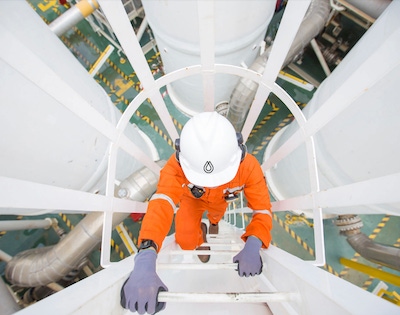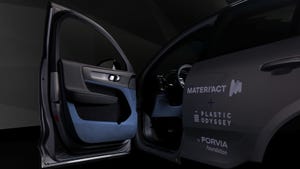Plants will help the country reduce its discharge of plastics into the ocean.
April 5, 2019

Plastic Energy Limited has reached an agreement with the province of West Java in Indonesia to build five chemical recycling plants. Plastic Energy uses patented thermal anaerobic conversion (TAC) technology to convert mixed stream end-of-life plastics such as polypropylene, polyethylene, and polystyrene into fuels.
|
Plastics Energy already operates two chemical recycling plants in Spain. |
|
Indonesia is the world’s second-biggest source of plastic ocean debris. [Sources: American Chemistry Council (data), Nova Chemicals (graphic) |
The TAC process heats waste plastic in the absence of oxygen until it melts and the polymer molecules break down to form a rich, saturated hydrocarbon vapor. The condensable products are converted to hydrocarbon products while the non-condensable gases are collected separately and combusted to process energy. Raw diesel, light oil (naphtha) and synthetic gas components are collected. Naphtha and diesel can be stored and sold to the petrochemical industry to convert back into plastics or used as transportation fuels. Syngas is used to operate the plant.
The memorandum of understanding (MoU) signed by the Governor of West Java, Ridwan Kamil, follows campaigns – including the United Nations (UN) Clean Seas, the Global Plastic Action Partnership, and the Our Ocean Conference – to reduce plastic pollution and, in particular, plastics reaching the ocean around Indonesia, a country which is second only to China for leaking plastic into the sea (see graphic).
The Indonesian government has made addressing the plastic waste issue a priority, with an ambitious commitment to reduce marine plastic debris by 70 percent by 2025.
The waste management industry in Indonesia is still in its early stages of development, and as such infrastructure development still faces a range of challenges. Plastic Energy is exploring partnerships with a range of public and private sector organizations to address these challenges and to facilitate the construction of these plants, and to make West Java a showcase for the rest of Indonesia.
Governor Ridwan Kamil commented: “West Java is the largest province in Indonesia in terms of population. We have 50 million people and 27 cities. West Java is also known as the province with a vision of green development, and are creating a series of strategies to make sure our future is sustainable. One of the big issues we are facing is plastic waste. So, therefore, I am very happy to sign this MoU with Plastic Energy, a British company that can transform plastic waste into fuel, something which is very useful. We are committed to ensuring this project is executed in a proper, transparent and professional way. We want to be the first region in Indonesia to have the facilities to transform plastic waste into energy and into fuel, through this partnership with Plastic Energy.”
Carlos Monreal, Founder and CEO of Plastic Energy commented: “We are delighted to be able to make a significant contribution to Indonesia’s battle to reduce plastic pollution. Through the introduction of these plants, we will give value to plastic waste which is usually sent to landfill and sometimes mismanaged which leads to the pollution of the ocean.”
Plastic Energy has two industrial plants which have been operational for more than three years in Spain and earlier this year reached an MoU agreement with Sabic to provide feedstock for the production of certified circular polymers, following the establishment of a commercial plant in the Netherlands.
About the Author(s)
You May Also Like






